The EU has imposed sanctions on influential Russian oligarchs. Some feel unjustly punished, one even criticizes the war, but all have benefited from being close to Putin. An overview.
The most prominent oligarch has so far not been included on the sanctions lists: Chelsea owner Roman Abramovich is not (yet) formally affected by the punitive measures that the West has imposed on a number of Russian individuals. Their assets are to be frozen and their freedom to travel restricted.
But even if Abramovich is not yet on the list, he is already taking action to forestall impending sanctions. He has already resigned from the management of Chelsea FC, and now he apparently wants to sell his expensive favorite toy entirely. He is said to have even put his villa and other properties in London up for sale. “Abramovitch is one of Putin’s closest advisers and friends. Like all the other oligarchs, he’s in a panic,” Swiss billionaire Hansjörg Wyss, who is currently negotiating with Abramovich about buying the football club, told the Blick newspaper.
The panic is justified. Because the sanctions that the West has imposed on Russian individuals because of the Ukraine war are not only affecting Putin himself, his government members and the military. But also Russian billionaires who have been able to do business undisturbed in Europe and live in luxury.
Which oligarchs are on the EU sanctions list, which came into force on Monday, and why? An overview.
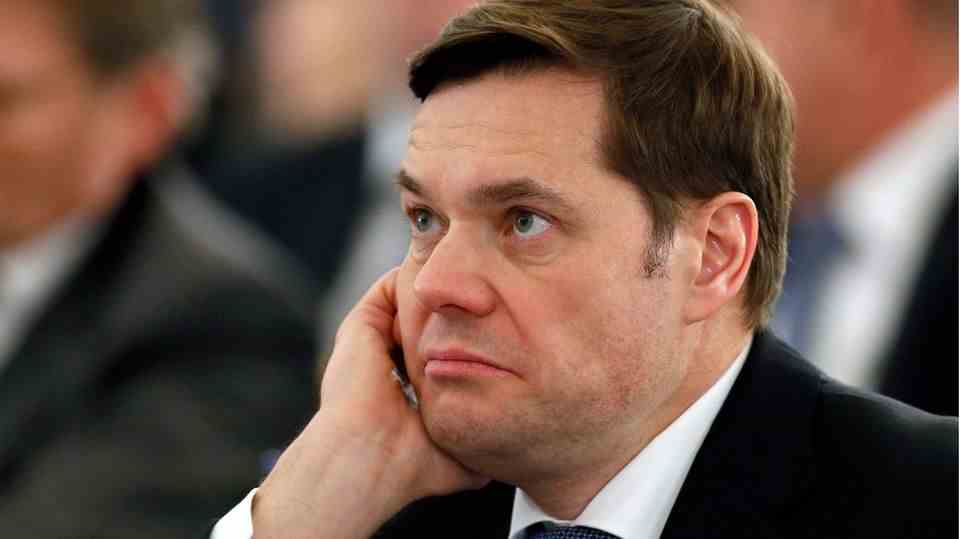
Alexey Mordashov
© Yuri Kochetkov / DPA
Alexei Mordashov, steel magnate and Tui shareholder
The most prominent name with a German connection is that of Alexej Mordaschow. He made a fortune with steel group Severstal and owns a third of the shares in German tourism group Tui, making him its largest single shareholder. Because of the sanctions, Mordashov now has to leave the Tui supervisory board, as the group announced on Wednesday. The day before, Mordashov had expressed his incomprehension about the sanctions against him. He has “absolutely nothing to do” with the emergence of “the current geopolitical tensions”. He was just a businessman and had never been close to politics.
The EU sees it differently. She accuses him of having benefited “from his connections to Russian decision-makers” as chairman of the steel company Severgroup. Bank Rossiya, in which he holds shares, is the personal bank of high-ranking officials. He also did wind power business on the occupied Crimean Peninsula and owned shares in television stations “that actively support the Russian government’s policy of destabilizing Ukraine.” In response to the sanctions, steel producer Severstal announced on Wednesday that it would stop all deliveries to the EU.
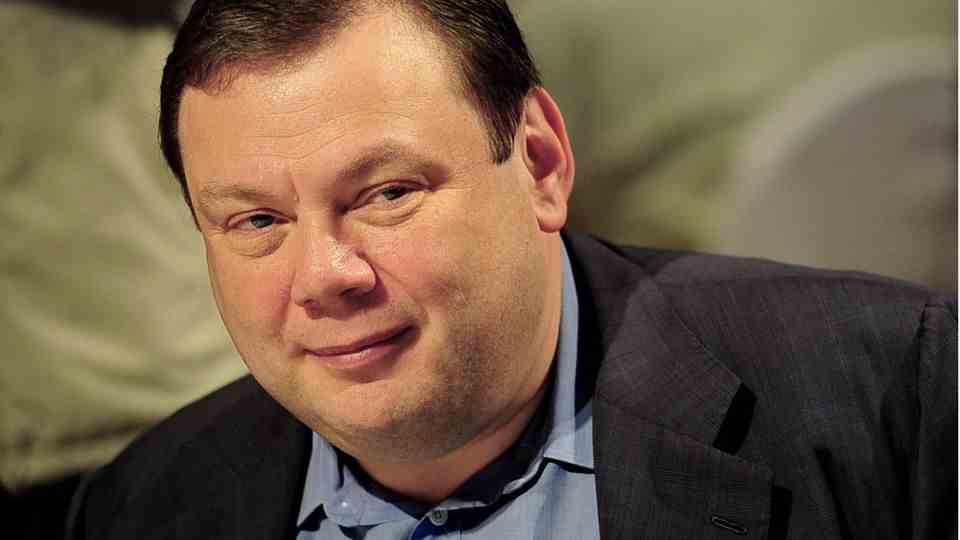
Mikhail Fridman
© TASS/ / Picture Alliance
Mikhail Fridman, banker and investor
The sanctioned oligarchs also include one of the few who have criticized the war. Mikhail Fridman is the founder and head of AlfaGroup, which includes AlfaBank, Russia’s largest private bank. The EU counts the 57-year-old “among the most important Russian financiers and supporters of Putin’s inner circle.” His eldest daughter Maria even managed a charity project for the bank, and in return Putin politically supported the bank’s investment plans abroad.
Fridman rejects any proximity to the Kremlin. In a letter to his employees, which became public via the Financial Times, he spoke out in clear terms against the war and called for an end to the “bloodshed.” Fridman points out that he himself was born and grew up in western Ukraine, and that his parents still live there today. He was “convinced that war can never be the answer”.
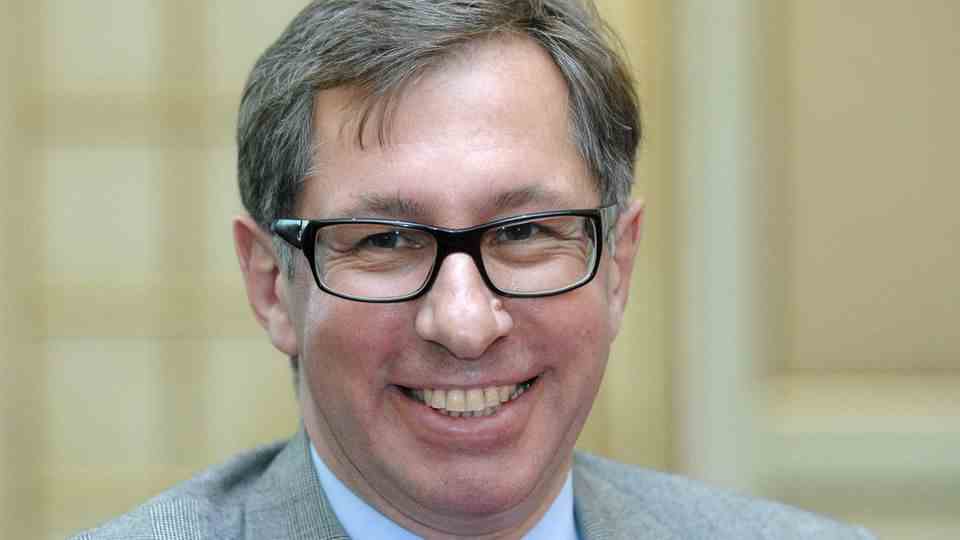
Pyotr Aven
© Itar-Tass/ / Picture Alliance
Pyotr Aven, banker
Fridman’s comrade-in-arms Pjotr Aven is also on the sanctions list. The 66-year-old is one of the most important shareholders of the Alfa Group and, alongside Fridman, its second head. The EU counts him among “about 50 very wealthy Russian businessmen who regularly meet Vladimir Putin in the Kremlin.” Aven has been friends with Putin since the early 1990s and is “one of the oligarchs most closely associated with Putin,” which is why she holds him partly responsible for his policies. Aven, like Fridman, said it was untrue that he had close ties to the Putin government, and that the allegations were “malicious and deliberate falsehoods.”
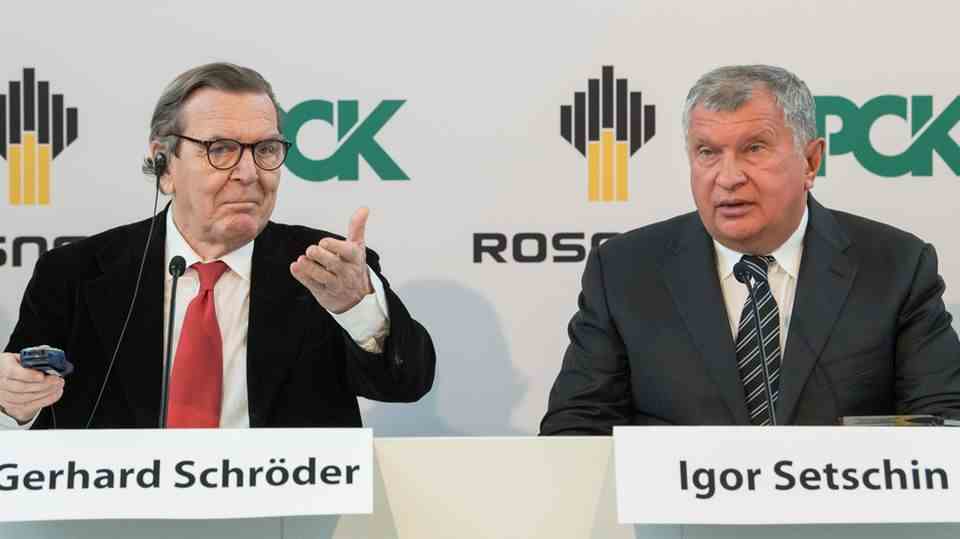
Rosneft boss Igor Sechin in 2018 with Rosneft supervisory board member Gerhard Schröder
© Patrick Pleul/ / Picture Alliance
Igor Sechin, Rosneft boss
The head of the state oil company Rosneft’s proximity to the Kremlin is obvious. The EU describes him as one of Putin’s “most trusted and closest advisers” and “personal friend”, with whom he is in daily contact. Sechin was already working as Putin’s personal assistant in Saint Petersburg in the early 1990s and followed him in various positions up to the post of deputy prime minister. As a politician, Sechin worked to break up Mikhail Khodorkovsky’s Rosneft competitor Yukos – and then, at the behest of Putin, took over the executive chair at Rosneft himself and thus control of the Russian oil business. In 2014, after the annexation of Crimea, the USA imposed an entry ban and account freezes on Sechin.
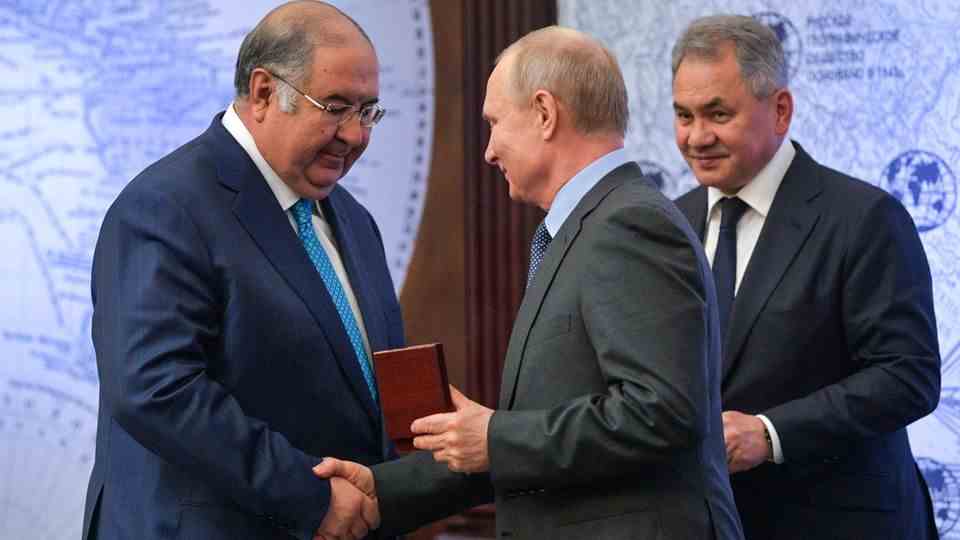
Alisher Usmanov (left) with President Putin and Defense Minister Sergei Shoigu
© Alexei Druzhinin/ / Picture Alliance
Alisher Usmanov, business mogul and sports official
Born in the Uzbek part of the Soviet Union, Alisher Usmanov is one of the most successful businessmen in Russia. He was in the financial industry, worked for Gazprom and created a mining and metals empire in the 2000s. According to the EU sanctions list, he is “one of the oligarchs particularly favored by Putin,” for whom he also personally solves business problems. He also made a name for himself as a sports official and was one of the largest shareholders in the English football club Arsenal FC.
In response to the sanctions, Usmanov announced on Tuesday that he would be stepping down as President of the World Fencing Federation, which he had held since 2008. He dismissed the EU’s allegations as “false” and “defamatory”.
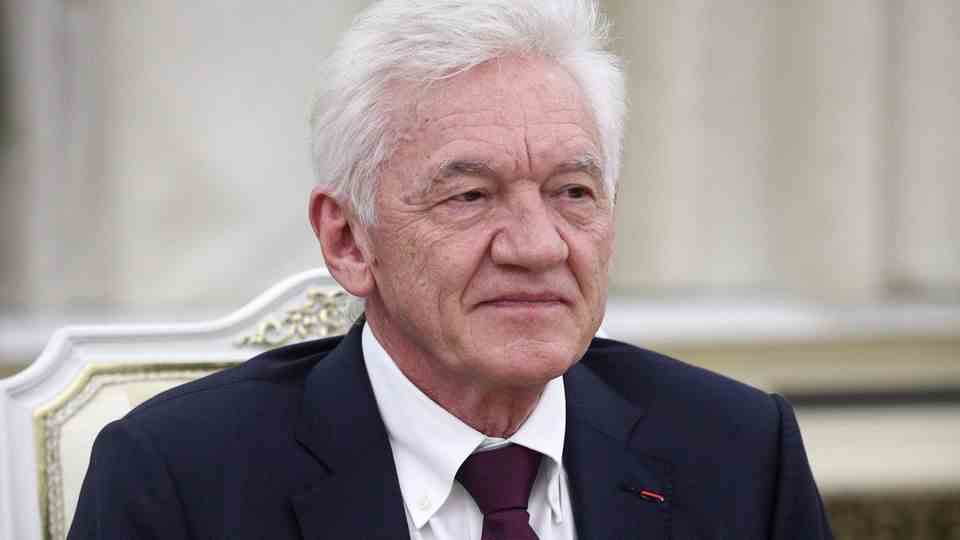
Gennady Timchenko
© Yegor Aleyev/ / Picture Alliance
Gennady Timchenko, entrepreneur and Swiss by choice
Gennady Timchenko is considered a close friend of Putin, with whom he shares a passion for ice hockey. As head of the investment company Volga, he is active in the energy business and in the construction industry, among other things, and he also holds a stake in the state-affiliated Rossiya Bank. Above all, Timchenko should make Switzerland accept the EU sanctions, because he lives with his family in Geneva.
Other oligarchs on the EU sanctions list:
Nikolai Tokarev, head of the oil pipeline operator Transneft. He still knows Putin from the KGB days in East Germany.
Alexander Ponomarenko, entrepreneur and head of Sheremetyevo Airport. He is said to have had close ties to the head of the Republic of Crimea and was involved in financing Putin’s palace near Gelendzhik.
Peter Fradkovhead of the state-controlled Promsvyzazbank, which finances state armaments projects.
Sergey Roldugin, actually a cellist, but since the publication of the Panama Papers several offshore companies have been assigned to him. The EU accuses him of secretly moving money around the world for his friend Putin.
Apart from these oligarchs, the list includes politicians and military officials from Putin’s circle of leaders, as well as journalists and media workers who disseminate state war propaganda.

